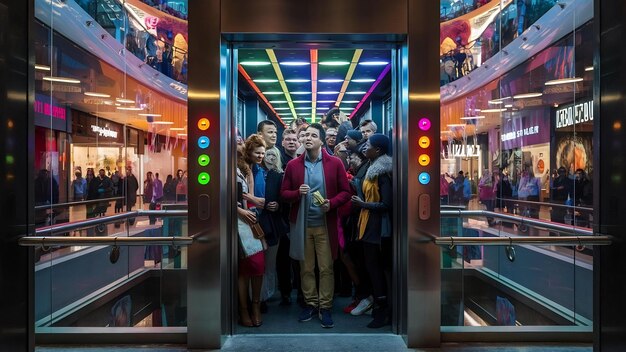The Future of Movie Criticism: Online Reviews Shaping the Industry in 2025

The Future of Movie Criticism: How Are Online Reviews Shaping the Industry in 2025? sees traditional movie critics yielding influence to online platforms and amateur reviewers, enabled by social media and review aggregation sites, significantly impacting film marketing and audience choices.
The way we perceive and choose movies is undergoing a dramatic transformation. The digital age has democratized voices, and the **future of movie criticism: How Are Online Reviews Shaping the Industry in 2025?** is increasingly influenced by online platforms and the opinions of everyday viewers.
The Shifting Landscape of Movie Criticism
The traditional role of the movie critic, once held solely by esteemed journalists and publications, is evolving. Online platforms have emerged as powerful players, providing a space for everyone to share their opinions and influencing how films are perceived.
This shift isn’t just about accessibility; it’s about the democratization of taste. No longer are viewers solely reliant on expert opinions. Instead, they can access a multitude of perspectives and form their own nuanced judgments based on shared experiences and diverse opinions.
Rise of the Amateur Critic
The internet has given rise to the amateur critic, whose voice, empowered by social media and review aggregation sites, carries significant weight. Their authentic, relatable opinions resonate with audiences seeking genuine perspectives.
Platforms like YouTube, TikTok, and personal blogs have become breeding grounds for film analysis, reviews, and discussions. These amateur critics cultivate loyal followings, often rivaling the influence of traditional media.
The Impact of Social Media
Social media has become an integral part of film marketing and audience engagement. Quick reactions, viral trends, and the power of influencers shape perceptions and drive ticket sales, demonstrating the profound impact of online sentiment.
- Instant Reactions: Social media provides instant reactions to films, influencing perceptions in real-time.
- Viral Trends: Trends like memes and challenges can boost a movie’s popularity, creating a buzz that traditional marketing can’t replicate.
- Influencer Marketing: Collaboration with influencers can generate excitement and drive ticket sales by tapping into established audiences.
- Direct Engagement: Filmmakers and actors can directly engage with audiences, fostering a sense of community and building anticipation for future projects.
In conclusion, the shifting landscape of movie criticism showcases a move towards more diverse voices and the growing power of online sentiment in shaping audience perceptions and driving the success of films.
Review Aggregation and Its Influence
Review aggregation sites like Rotten Tomatoes and Metacritic play a pivotal role in compiling and presenting a consolidated view of critical opinions. Their scores often dictate a film’s success, influencing marketing strategies and audience decisions.
However, this reliance on aggregate scores raises concerns about the potential for bias and the oversimplification of complex critical viewpoints. The nuances that shape a reviewer’s outlook can get lost in numerical representation.
How Scores Impact Box Office
High scores on review aggregation sites can significantly boost box office revenue, indicating how heavily audiences rely on these scores to make viewing decisions. The inverse is also true. Low scores can deter audiences.
Studios are now heavily investing in strategies aimed at improving their film’s scores. This includes targeted marketing campaigns, pre-release screenings for influential critics, and even strategic adjustments to the film based on early feedback in a focus group.
Potential for Bias and Manipulation
The potential for bias and manipulation within review aggregation systems can undermine the integrity of the review process. Orchestrated campaigns, paid reviews, and algorithmic vulnerabilities all pose threats to fair representation.
It’s crucial to approach these scores with a critical eye, seeking out individual reviews and alternative perspectives to form a well-rounded opinion. Relying solely on a single number can blind you to subtleties and nuances that enrich your experience.

In summary, while review aggregation sites provide a valuable service summarizing critical opinions, it’s crucial to remain aware of the potential for bias and manipulation, ensuring that viewing decisions are informed by a variety of sources.
The Decline of Traditional Movie Critics
As online platforms gain prominence, traditional movie critics are facing a decline in readership and influence, leading to a re-evaluation of their role in the evolving media landscape.
The established voices that once shaped popular opinion are now competing with a multitude of amateur reviewers, social media influencers, and algorithm-driven recommendations. This shift challenges the established hierarchy of critical assessment.
Challenges Faced by Traditional Critics
Traditional movie critics are facing challenges such as dwindling readership, decreasing job opportunities, and the pressure to adapt to new media formats. The rise of digital platforms requires them to innovate and engage with audiences in new ways.
- Dwindling Readership: Online platforms offer free and instantaneous access to reviews, diminishing the appeal of paid subscriptions to traditional outlets.
- Decreasing Job Opportunities: Shrinking budgets and shifts in media consumption are leading to fewer jobs for traditional movie critics.
- Adapting to New Media: Traditional critics must embrace video essays, podcasts, and social media to reach wider audiences and remain relevant.
- Maintaining Authority: With the proliferation of online voices, traditional critics must work harder to maintain their authority and credibility.
Adapting to the Digital Age
To remain relevant, traditional movie critics are adapting to the digital age by embracing new media formats, cultivating online presence, and engaging with audiences in a more interactive way. Their expertise now needs to extend beyond the written word.
Some are embracing video content, producing slickly edited analyses on YouTube. Others are becoming active on social media, engaging in debates, answering questions, and building communities around cinema. Their adaptability will determine their survival.

Ultimately, the decline of traditional movie critics highlights the necessity for adapting to changing media habits, embracing new platforms, and engaging with audiences in innovative ways to maintain a voice in the evolving landscape of film criticism.
The Rise of Niche and Specialized Reviews
The future sees a rise in niche and specialized reviews catering to specific interests and demographics. This trend reflects the increasing fragmentation of the media landscape and the demand for personalized content.
From genre-specific reviews to analyses focused on representation and social commentary, the critical landscape is diversifying to meet the varied needs and interests of online audiences.
Catering to Specific Audiences
Niche reviewers cater to specific audiences by offering focused analysis and recommendations tailored to their unique interests and preferences. This approach allows them to build loyal followings within these niche groups.
For example, a blog dedicated to reviewing only horror films attracts an audience passionate about the genre. A podcast focusing on independent cinema resonates with viewers seeking alternatives to mainstream blockbusters. This specialization fosters deep engagement.
Focus on Representation and Social Commentary
Reviews increasingly focus on representation and social commentary, addressing issues of diversity, inclusion, and the portrayal of marginalized communities in film. This emphasis reflects a growing awareness of social justice and media responsibility.
Critics are now more likely to analyze films through the lens of gender studies, race theory, and queer studies. They examine how characters from marginalized groups are portrayed, whether their narratives are authentic, and whether the film perpetuates harmful stereotypes. This commentary sparks crucial dialogues.
The rise of niche and specialized reviews showcases the growing demand for content that resonates with viewers on a personal and meaningful level, providing unique perspectives tailored to specific interests and reflecting social values.
The Impact on Filmmaking and Marketing
Online reviews are significantly impacting filmmaking and marketing, influencing production decisions, shaping marketing strategies, and dictating how films are positioned and promoted to audiences.
Filmmakers and studios are increasingly aware of the power of online opinions, leading them to adapt their approaches and cater to audience sentiment to ensure a positive reception.
Adapting Production Decisions
Filmmakers are adapting production decisions based on online feedback, incorporating audience suggestions, altering storylines, and adjusting special effects to meet viewer expectations. This responsiveness enables them to create films that are more likely to resonate with audiences.
Shaping Marketing Strategies
Marketing strategies are being shaped by online reviews, with studios tailoring campaigns to highlight positive feedback, address criticisms, and manage public perception. This involves monitoring social media, engaging with reviewers, and crafting narratives that resonate with online sentiment.
For instance, a studio might emphasize praise for a film’s visual effects in its advertising campaign if early reviews highlight them as a strong point. Conversely, they might address concerns about pacing by releasing shorter trailers or focusing on action sequences.
In conclusion, the impact of online reviews on filmmaking and marketing is undeniable, leading to greater responsiveness to audience feedback and a shift towards strategies designed to manage and leverage online perception.
Ethical Considerations and the Future of Critical Integrity
Ethical considerations surrounding online reviews and the future of critical integrity are becoming increasingly important as platforms gain influence. Questions of transparency, authenticity, and the potential for bias must be addressed to maintain trust in the critical process.
Ensuring that reviewers are free from external influence, that reviews are genuine, and that platforms are transparent in their practices is crucial to safeguarding the integrity of movie criticism.
Combating Fake Reviews and Bots
Combating fake reviews and bots is essential to maintaining the integrity of online review platforms. Measures such as verification processes, algorithmic detection, and community moderation are needed to identify and remove inauthentic content.
- Verification Processes: Implementing verification processes for reviewers to ensure they are real individuals.
- Algorithmic Detection: Using algorithms to detect patterns indicative of fake reviews and bot activity.
- Community Moderation: Empowering the community to flag and report suspicious reviews.
- Transparency Policies: Establishing clear policies regarding sponsored content and potential conflicts of interest.
Promoting Transparency and Accountability
Promoting transparency and accountability among reviewers and platforms is critical to fostering trust and credibility in online criticism. Disclosure policies, conflict-of-interest statements, and editorial oversight can help maintain ethical standards.
Reviewers should disclose any relationship they have with the filmmakers, studios, or distributors whose work they are reviewing. Platforms should be transparent about how they handle reviews and how their algorithms work. This level of accountability will safeguard the integrity of the critical landscape.
| Key Point | Brief Description |
|---|---|
| 📢 Online Influence | Online reviews significantly shape audience choices. |
| ⭐Review Aggregation | Scores impact box office but may have biases. |
| 🎭Ethical Standards | Combating fake reviews is vital for integrity. |
| 🎬Niche Reviews | Specialized reviews cater to diverse interests. |
FAQ
▼
Online reviews have democratized criticism, allowing anyone to share opinions and influencing how movies are perceived. The voices of amateur critics now rival those of traditional critics.
▼
Sites like Rotten Tomatoes compile reviews and provide a score that influences audience decisions and films’ box office performance. However, they risk oversimplifying complex viewpoints.
▼
Filmmakers adapt by incorporating viewer feedback, altering storylines, and adjusting marketing to manage public perception. This responsiveness helps create films that resonate well.
▼
Ethical considerations include transparency, authenticity, and combatting fake reviews and bots. Maintaining public trust requires these issues to be addressed properly by platforms and critics.
▼
Niche reviews cater to specific interests and demographics, offering tailored analysis and building loyal followings. They meet the demand for personalized content in a fragmented media landscape.
Conclusion
In conclusion, the evolving landscape of movie criticism is significantly shaped by online reviews, which impact filmmaking, marketing, and audience decisions. As we look to the future, maintaining ethical standards and promoting transparency will be crucial to preserving the integrity and value of film criticism.





